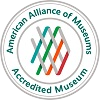“Oberlin Knows No Crisis”: Local Happenings during the Presidential Inauguration of 1861
Tuesday, March 8th, 2011On March 4, 1861, one-hundred-and-fifty years ago, Abraham Lincoln was inaugurated President of the United States of America. Only a few weeks before in Montgomery, Alabama, Jefferson Davis had been inaugurated provisionally as President of the Confederate States. With already seven states having seceded from the Union, Lincoln began his presidency of a fragile United States. Fittingly, his speech was entirely devoted to the “secession flurry.” The country was at a breaking point, he admitted—but it was unnecessarily and wrongly so. “May his views of prerogative penetrate the nation,” Oberlin’s local paper, The Lorain County News states approvingly, “[but] whether the mild measures which Mr. Lincoln proposes will not excite civil war remains to be seen.”
While the federal government was in strife, small town life in Oberlin was not—“Oberlin Knows no Crisis,” the local paper comments. Yes, the country was in a tough spot, and certainly, Oberlinians were aware of it. Daily life in the village, though, very much like today, was ongoing. So, what was going in Oberlin 150 years ago? A perusal of the local paper finds out: a lot!
The weather in Wellington and Oberlin was mild these first two weeks in 1861, more like “May, instead of March.” Temperatures were recorded as being upwards of sixty.
The college’s student population was threatening to reach an all time high—700 enrolled, and perhaps, could reach 1000! This, despite the “crisis,” the editor of the paper notes. Oberlin College students had just participated in the “Day of Annual Fasting and Prayer for Colleges,” which entailed, as the title speaks of, fasting and prayer for Christian students and the colleges that endeavored to educate them.
Complaints were pouring in about the condition of some of the sidewalks in Oberlin: “One fourth of the walks in our otherwise moral and orthodox village are indecently dangerous! [They are] in a state hardly navigable for cats.” (To modern Oberlinians and readers elsewhere just coming ourselves out of a long and snowy winter: I think we can relate!)
A classified in the local paper reads similar to one we might find today for a car, “For Sale-A valuable Horse, and a first rate new Lumber Wagon, (single or double) cheap for cash. Call on R.J. Shipherd.”
An elderly woman wrote in to the paper and commented on Harriet Beecher Stowe, author of Uncle Tom’s Cabin, “What a critter Mrs. Stowe is to write!” This was just after she had just finished another chapter of the book.
On impure drinking water, the local paper advises: “Set a pitcher of iced water in a room inhabited, and in a few hours it will have absorbed from the room nearly all the respired and perspired gases of the room, the air of which will have become purer, but the water utterly filthy. Hence water…should be often renewed.”
In retrospect, in the first days of March 2011,
Karyn Norwood
Questions? Comments?
Email: [email protected]
Source Consulted:
The Lorain County News, 6 March 1861, p. 2,3; The Lorain County News, 13 March 1861, p. 2.











